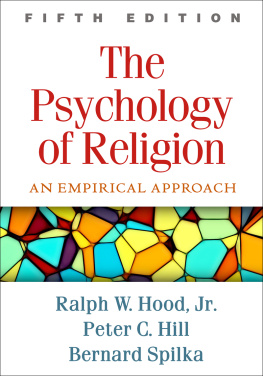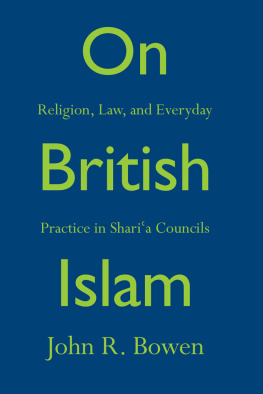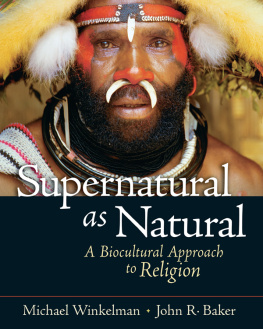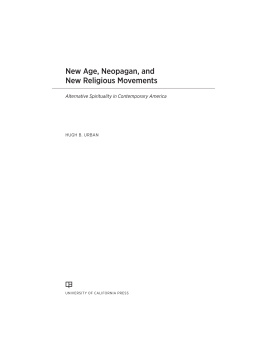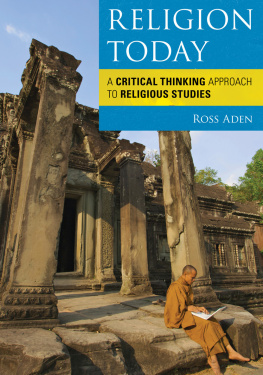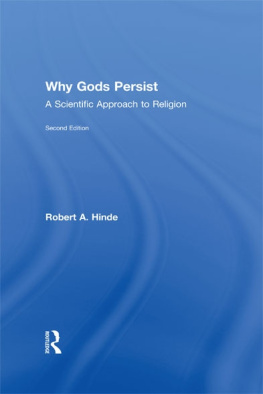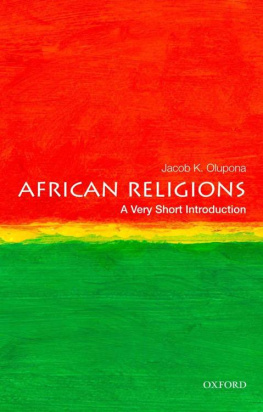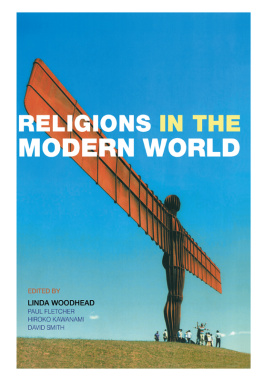Religions in Practice
Religions in Practice provides a comprehensive and primarily theme-based overview for students who are being introduced to the anthropology of religion. Whilst covering traditional topics such as magic, witchcraft, and spiritual healing, the book also addresses key contemporary subjects including migration, transnationalism, nationalism, secularism, and law. It offers an issues-oriented perspective on everyday religious behaviors and examines small-scale societies as well as major, established religions. Throughout the text, Bowen engages with ongoing debates concerning the place of religion in public life. He successfully balances the presentation of theory and concepts with rich case study examples, integrating theoretical discussion with a wide range of cross-cultural ethnographic material.
This seventh edition has been updated throughout. The opening section now focuses more clearly on the question of what is religion and on approaches to studying religion. There is more on materiality as well as a new final chapter on religious mobilizing and violence. Further resources are available via a comprehensive companion website.
John R. Bowen is Dunbar-Van Cleve Professor in Arts and Sciences at Washington University in St. Louis. His research focuses on comparative social studies of Islam across the world.
Religions in Practice
An Approach to the Anthropology of Religion
Seventh edition
John R. Bowen

Seventh edition published 2018
by Routledge
2 Park Square, Milton Park, Abingdon, Oxon, OX14 4RN
and by Routledge
711 Third Avenue, New York, NY 10017
Routledge is an imprint of the Taylor & Francis Group, an informa business
2018 John R. Bowen
The right of John R. Bowen to be identified as author of this work has been asserted by him in accordance with sections 77 and 78 of the Copyright, Designs and Patents Act 1988.
All rights reserved. No part of this book may be reprinted or reproduced or utilized in any form or by any electronic, mechanical, or other means, now known or hereafter invented, including photocopying and recording, or in any information storage or retrieval system, without permission in writing from the publishers.
Trademark notice: Product or corporate names may be trademarks or registered trademarks, and are used only for identification and explanation without intent to infringe.
First edition published by Allyn & Bacon 1997 Sixth edition published by Pearson 2013
British Library Cataloguing-in-Publication Data
A catalogue record for this book is available from the British Library
Library of Congress Cataloging-in-Publication Data
Names: Bowen, John R. (John Richard), 1951- author.
Title: Religions in practice : an approach to the anthropology of religion / John R. Bowen.
Description: Seventh edition. | Milton Park, Abingdon, Oxon ; New York, NY : Routledge, [2017] | Includes bibliographical references and index.
Identifiers: LCCN 2017024169 (print) | LCCN 2017025084 (ebook) | ISBN 9781315411095 (E-book) | ISBN 9781138736795 (hardback : alk. paper) | ISBN 9781138221123 (pbk. : alk. paper)
Subjects: LCSH: Religion. | Anthropology of religion.
Classification: LCC BL48 (ebook) | LCC BL48 .B625 2017 (print) |
DDC 306.6-dc23
ISBN: 978-1-138-73679-5 (hbk)
ISBN: 978-1-138-22112-3 (pbk)
ISBN: 978-1-315-41109-5 (ebk)
Figures
Scripture quotations taken from the New American Standard Bible (NASB), Copyright 1960, 1962, 1963, 1968, 1971, 1972, 1973, 1975, 1977, 1995 by The Lockman Foundation Used by permission. www.Lockman.org.
In this book, we examine a wide range of social phenomena, from the rise of the Japanese state and diverse forms of state secularism, to practices of healing and harming, and of shaping speech and selves, to large-scale movements and transformations of Christianity, Islam, and Hinduism. In each case we look at religious practices, a focus that I explain and justify in the rest of this chapter. I claim for all of this book an anthropological perspective, but I draw on work in sociology, politics, history, law, and religious studies. My interest is in processes and practices, micro-level interactions and long passages of time, as these scales and approaches help us to better understand how people construct and understand the religious.
Unfortunately we all sometimes misunderstand how religion works in other peoples lives, and I begin now with an example, unfortunately one of mass murder, in order to reflect on how difficult it is to relate religions to practice. In this case, the task is harder because it concerns someone who committed unfathomable acts.
On June 12, 2016, Omar Mateen, a young American security guard, killed 49 people in an Orlando, Florida, nightclub, before he was shot dead by police. He was a Muslim and he told a negotiator that he was shooting because the United States was bombing Muslims in Syria and Iraq. Do religious beliefs explain the shooting? Its not so clear. Mateen claimed allegiance both to Hezbollah and to al-Qaeda a highly implausible claim because the two are sworn enemies of each other and because he did so only right before the killings. Moreover, the FBI found no evidence of ties to terrorism. Things become still murkier. Pulse is a gay club, and the victims were largely LGBT people; that night the club was holding Latin Night, and the victims were mainly Hispanic. Witnesses said that they had seen Mateen at the club on earlier occasions, and that he had blamed a gay, Hispanic man for an illness.
Some were quick to assume the Islamic motive. Presidential candidate Donald Trump said the shooting showed he was right about radical Islamic terrorism and (mistakenly) claimed that Mateen was an immigrant. But virtually all American religious groups, including the major Muslim associations, quickly denounced the massacre as an attack on LGBT people. The United Nations Security Council condemned the shooting for targeting persons as a result of their sexual orientation, as did such largely Muslim countries as Egypt, Iran, and Saudi Arabia. The only American religious groups to sound a sour note were Christian extremists, such as the Baptist pastor in Sacramento who said his only regret was that the shooter didnt finish the job. These remarks were quickly denounced by many in his church and by other pastors (McPhate 2016).
It is difficult to know what motivates mass killers. When in 2011, Anders Behring Breivik killed 77 people in Norway, most of them youth members of the Norwegian Labor Party, he had released a long statement espousing hatred for all those whom he saw as destroying a properly Norwegian way of life (Bangstad 2014). Among his most despised targets were Islam and the multicultural politics of the elite. For years he had drenched himself in the writings of far-right, anti-Islam activists in the United States and Europe, and he planned his killing spree as a way of saving Christian Europe from Islam. We could liken the role of anti-Islam writings in his case to the role of jihadists calls for violence in that of Omar Mateen not as sufficient explanations of their actions but as sources for their fatal turn to destruction, perhaps as final self-justifications. The difficulty of fully understanding what motivates such people should caution us against overly rapid labelling. If no one called Breiviks massacre radical Christian terrorism, despite what he said, then we should not ascribe a similar label to Mateens terrible acts. Indeed, a 2013 study by the Homeland Security Center of Excellence found that during the period 19702011, of all groups committing acts labeled by the government as terrorist, only 7 percent were motivated by religious beliefs (START 2013). And, whatever was going on in the minds of Breivik, Mateen, or the murderous truck driver in Nice in 2016, it surely was not about leading a life of religious devotion.



